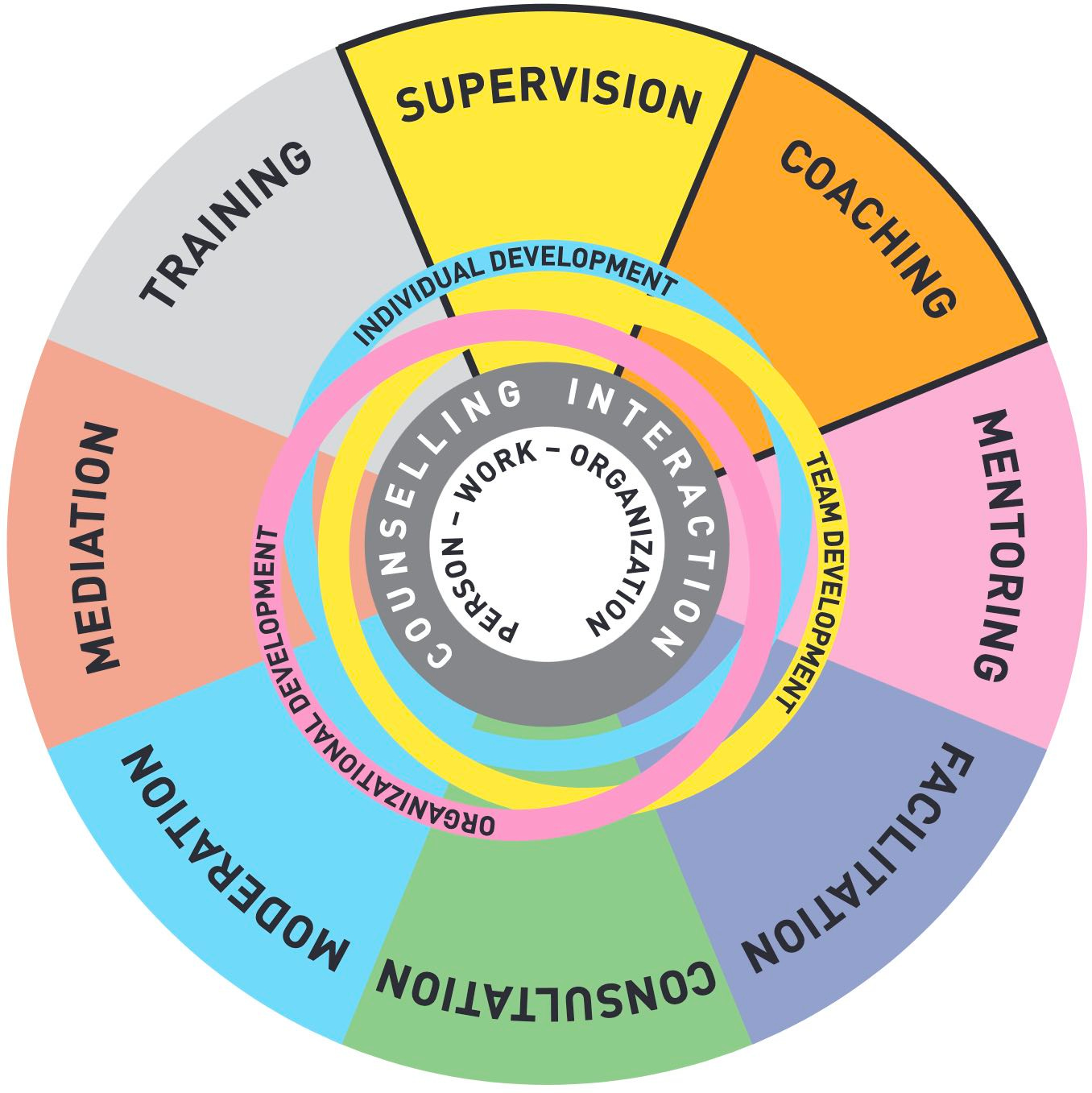What is Coaching - like really?
Coaches - they seem to be everywhere right now. Learn about Coaching, how you can profit from it and how you avoid the scams!
This is part 1 of a series of articles.
Coaches - they seem to be everywhere right now. Whether as saviors for financial success, health or even in the professional environment. And even in the professional field, we see business coaches, product coaches, agile coaches - and it's rarely clear exactly what they actually do:
From partnership accompaniment in decision-making situations to scam and Ponzi scheme - often the self-proclaimed coaches are black hat salespeople, in harmless cases just for halfway helpful online trainings, in extreme cases for self-destructive and ruinous sessions of narcissistic Youtubers.
But what do serious coaches do, what can they do for you, and how do you recognize them? We're devoting this three-part series on coaching to these questions.
What is coaching?
In the general understanding, coaching often occurs in the meaning of sports coaches, i.e. a person who gives tips and solutions according to a well thought-out plan, and accompanies the execution vociferously. Coaches appear thus as advisor, which know the solution to all problems or have found the golden formula. Which of course implies that a.) the coach(es) fully understand your problem, and b.) there are standardized solutions to individual challenges that always work. How well they work, most of us know from our own experience.
Coaching as a job title is currently not protected or restricted, i.e. anyone can call themselves a coach and act as such. It is not necessary to provide proof of training as it’s required in therapy or mediation. There are numerous initiatives on governmental and non-governmental level (e.g. ECVision - a European competence profile for supervision and coaching), but unfortunately none of them are legally binding.

Let's have a look at the different phases that occur when working on issues and problems, regardless of what the consultant calls himself or herself or what form of consulting is carried out:
Problem - It begins with the fact that a client has an unsolved topic, a problem or an issue of any kind.
Diagnosis - A problem analysis, interpretation and diagnosis takes place.
Solution - A solution matching the diagnosis is worked out or recommended.
Execution - The found solution is executed.
Example: I have a headache and a runny nose and go to the doctor. She gives me the diagnosis ("this is flu"), and she prescribes me the appropriate solution (treatment for flu). All that remains with me as the person seeking help is to carry out the solution (e.g. a doctor's remedy). I have to fully rely on the correctness of the diagnosis and the proposed solution.
With this distinction, different forms of consulting such as coaching, supervision, therapy, mediation or expert consulting can be described.
While there can be standardized solutions for very simple problems for sure, it most likely fails for more complex topics already with the correct problem recognition, speak diagnosis.
Professional coaching can be sorted into these phases quite easily:
Here, the focus is on partnering in the process of working through the problem. The problem diagnosis as well as the solution remain completely with the client. Coaching acts here as a process accompaniment, as a question poser.
The goal is to provide the client with new perspectives on her issue, so that she can arrive at new solutions that she may not have seen before, or may have seen but was not quite sure of.
Coaching is partnering with clients in a thought-provoking and creative process that inspires them to maximize their personal and professional potential.
Coaches always assume that the client is always the expert for his or her problem, topic and system. Coaches therefore do not have to understand the problem in its entirety. However, they will always listen carefully and ask about the issue in such a way that the client can reflect on it and better understand it for herself.
Some coaching in the professional environment, such as product coaching, also provides specialist or experiential knowledge. This is outside of coaching and is therefore strictly rejected by many coaches. Personally, I think that knowledge from the domain and experience in it can also have its place in coaching, as long as it is offered as a "how others have done it" option at the right time, so that the client can compare her own ideas with it or is inspired by it. The difficult balancing act here, however, is that the solution space remains completely the client's responsibility and the coaches don't talk in their own fixed ideas.
Coaching is a form of professional counseling that inspires the coachees to maximize their personal and professional potential. It aims on initiating a transformational process. Goals and solutions are discovered along the way. Coach and coachees work together in a partnering relationship. The coachees are experts on the content level; the coach is an expert in professional counseling. (ECVision, S. 54)
What kind of coaching or consulting do I need?
Many questions around expertise, tooling (How does analytics work? What are the tools for ticketing?) or industry-standard tactics (How can I create a roadmap?) can be covered through training or expert consulting. The solutions offered in the training are usually standardized and oriented to defined learning objectives (LOs); the transfer into everyday work must then be performed by the participants themselves.
However, the more complex an issue becomes, the more unknowns there are, the more "people stuff" plays a role, the less helpfulo standard solutions are. This is where coaching can be of enormous value, especially if the starting question itself is still vague.
Many product coaches are consultants in the literal sense of the word. They take on the problem described without questioning it (the diagnosis therefore remains with the customer) and work out a suitable solution. This can be enormously helpful and time-saving, but may miss the problem. If I need help setting up tracking for my web store, expert advice is most likely the best choice.
Mixed types
Of course, there are not only the types in pure form, but also mixed forms. So, for example, a coach who assists in the solution implementation at the end of the coaching. Or a trainer who is available as a coach for the practical transfer after a completed training.
My tip: think carefully about what kind of support is needed based on the phases above. All good coaches will do a free assignment clarification with you, where exactly these modalities will be discussed and agreed upon.
Coming up next in part 2:
- What can coaching do for you?
- How to find a good coach and avoid scams?

